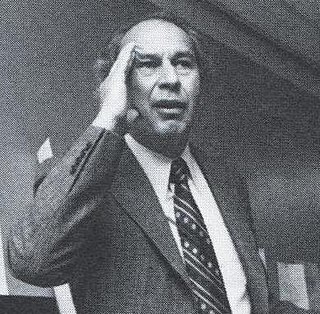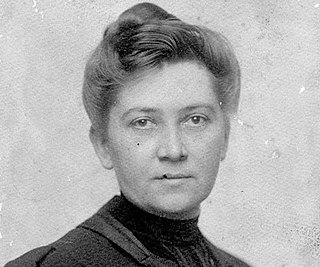A Quote by George Lois
If a man does not work passionately - even furiously - at being the best in the world at what he does, he fails his talent, his destiny, and his God.
Related Quotes
It is God's earth out of which man is taken. From it he has his body. His body belongs to his essential being. Man's body is not his prison, his shell his exterior, but man himself. Man does not "have" a body; he does not "have" a soul; rather he "is" body and soul. Man in the beginning is really his body. He is one. He is his body, as Christ is completely his body, as the Church is the body of Christ
Working hard and doing doing great work is as imperative as breathing. Creating great work warms the heart and enriches the soul. Those of us lucky enough to spend our days doing something we love, something we're good at, are rich. If you do not work passionately (even furiously) at being the best in the world at what you do, you fail your talent, your destiny, and your god.
When a man has offered in sacrifice all that he has for the truth’s sake, not even withholding his life, and believing before God that he has been called to make this sacrifice because he seeks to do his will, he does know, most assuredly, that God does and will accept his sacrifice and offering, and that he has not, nor will not seek his face in vain.
The fact that labour is external to the worker, i.e., it does not belong to his intrinsic nature; that in his work, therefore he does not affirm himself but denies himself, does not feel content but unhappy, does not develop freely his physical and mental energy but mortifies his body and his mind. The worker therefore only feels himself outside his work, and in his work feels outside himself.
When God calls a man, He does not repent of it. God does not, as many friends do, love one day, and hate another; or as princes, who make their subjects favourites, and afterwards throw theminto prison. This is the blessedness of a saint; his condition admits of no alteration. God's call is founded upon His decree, and His decree is immutable. Acts of grace cannot be reversed.God blots out His people's sins, but not their names.
A man's real faith is never contained in his creed, nor is his creed an article of his faith. The last is never adopted. This it is that permits him to smile ever, and to live even as bravely as he does. And yet he clings anxiously to his creed, as to a straw, thinking that that does him good service because his sheet anchor does not drag.
A man follows the path laid out for him. He does his duty to God and his King. He does what he must do, not what pleases him. God's truth, boy, what kind of world would this be if every man did what pleased him alone? Who would plough the fields and reap the harvest, if every man had the right to say, 'I don't want to do that.' In this world there is a place for every man, but every man must know his place.
The wise man does nothing but what can be done openly and without falseness, nor does he do anything whereby he may involve himself in any wrong-doing, even where he may escape notice. For he is guilty in his own eyes before being so in the eyes of others; and the publicity of his crime does not bring him more shame than his own consciousness of it.
Emulation, even in brutes, is sensitively "nervous." See the tremor of the thoroughbred racer before he starts. The dray-horse does not tremble, but he does not emulate. It is not his work to run a race. Says Marcus Antoninus, "It is all one to a stone whether it be thrown upward or downward." Yet the emulation of a man of genius is seldom with his contemporaries, that is, inwardly in his mind, although outwardly in his act it would seem so. The competitors with whom his secret ambition seems to vie are the dead.
A man with a talent does what is expected of him, makes his way, constructs, is an engineer, a composer, a builder of bridges. It's the natural order of things that he construct objects outside himself and his family. The woman who does so is aberrant. We have to expiate for this cursed talent someone handed out to us, by mistake, in the black mystery of genetics.
If the artist does not fling himself, without reflecting, into his work, as Curtis flung himself into the yawning gulf, as the soldier flings himself into the enemy's trenches, and if, once in this crater, he does not work like a miner on whom the walls of his gallery have fallen in; if he contemplates difficulties instead of overcoming them one by one ... he is simply looking on at the suicide of his own talent.







































